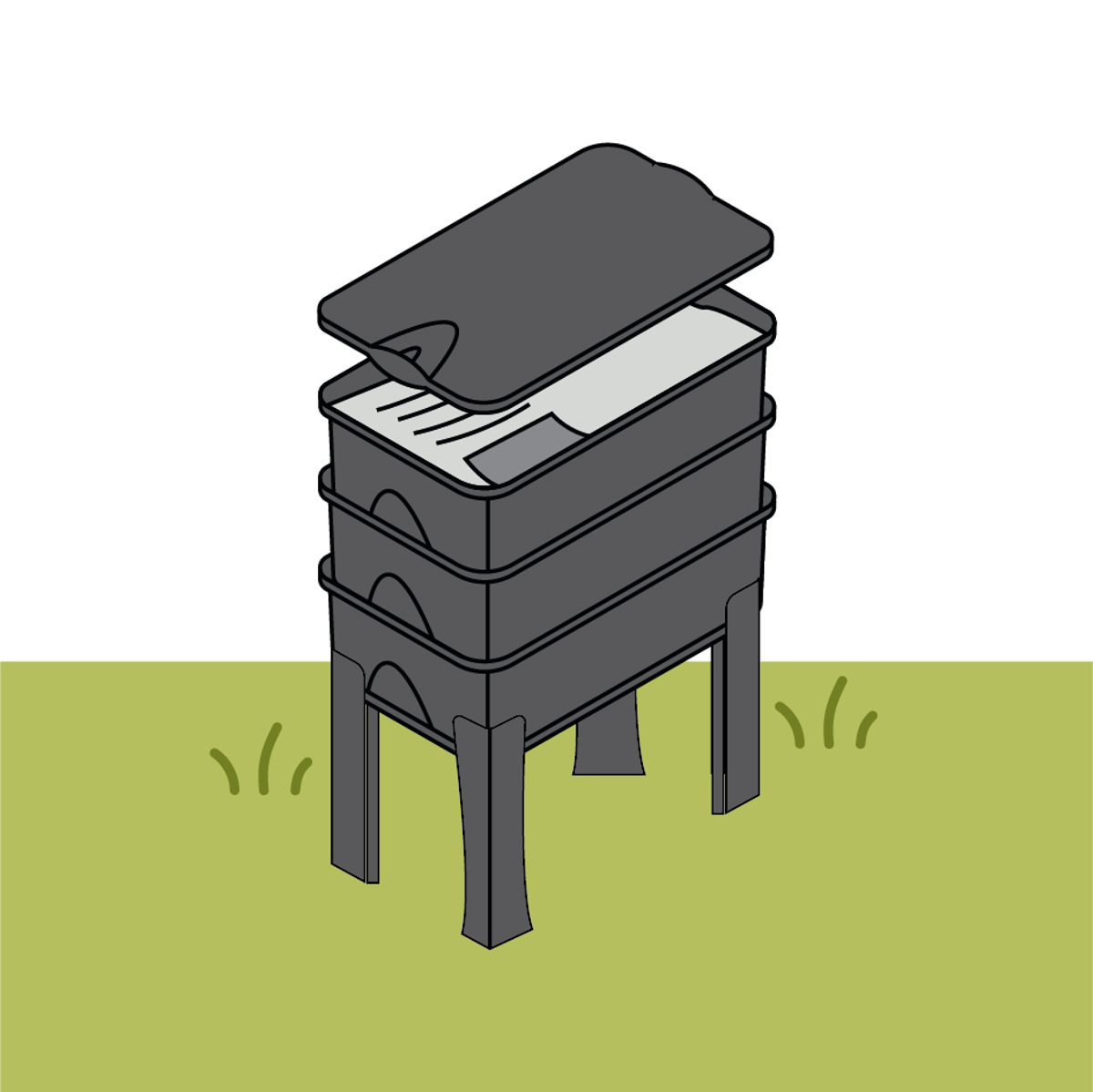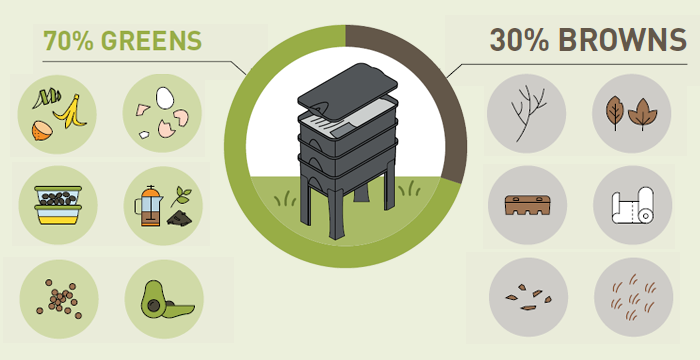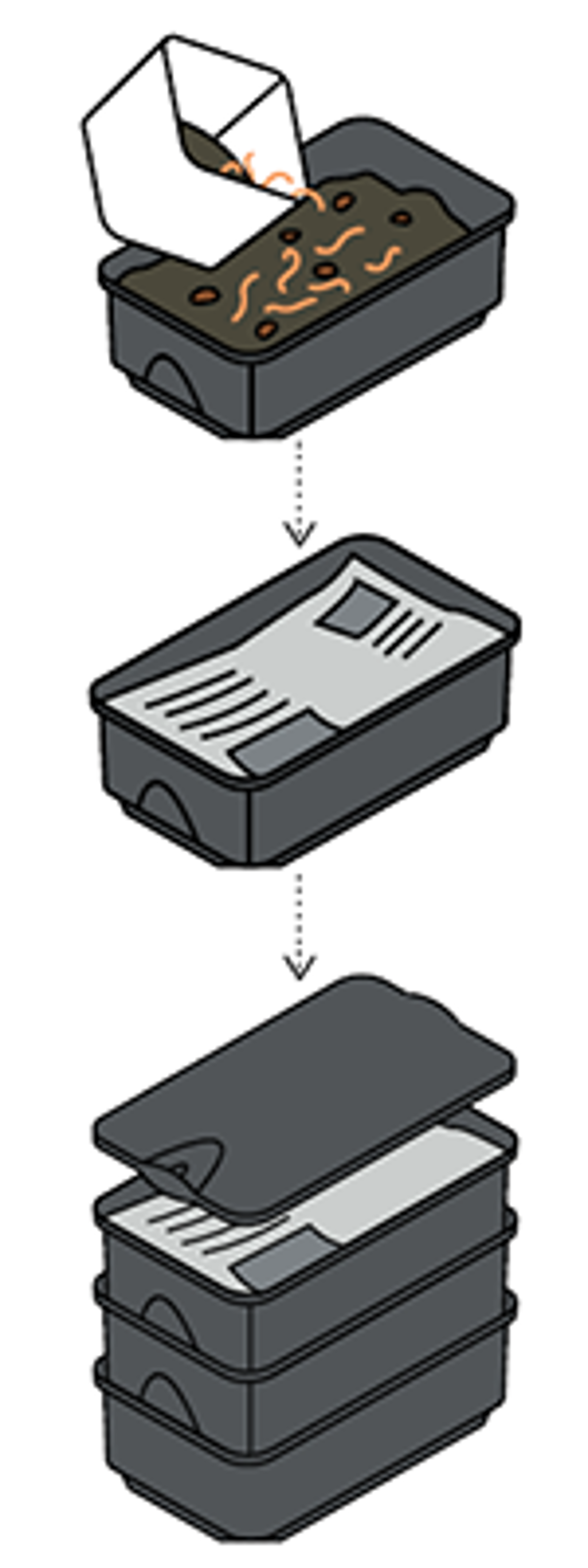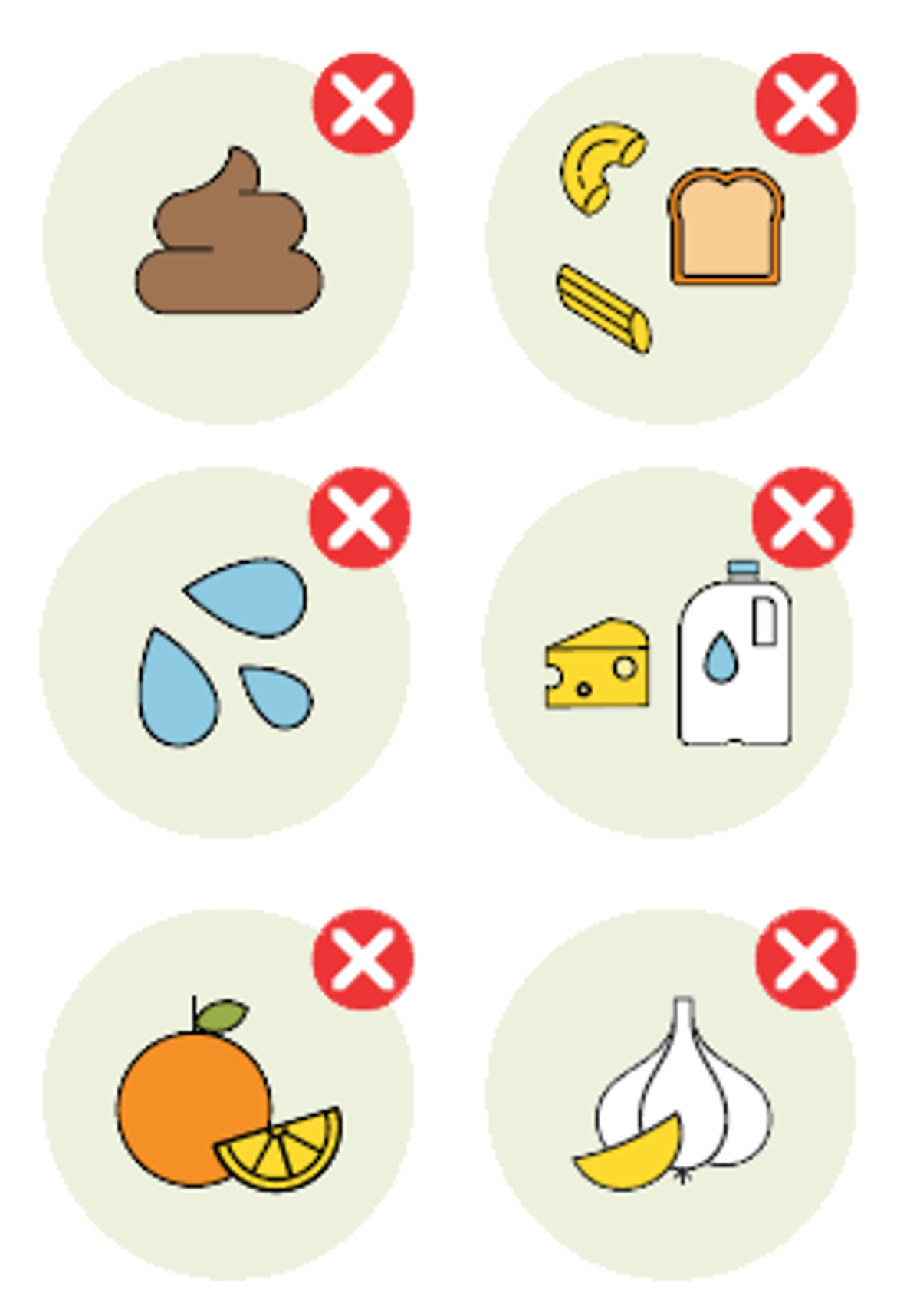Worm farms
Worm farms use composting worms (eg, tiger worms) to eat through a mixture of food scraps, garden waste, paper and cardboard. Both the solids (castings) and the liquids (worm tea) make excellent fertilisers for the garden.
Worm farms are mostly for food waste, but small amounts of garden waste can be added. Once established, worms will process food waste quickly and provide a continuous supply of rich fertiliser. Most models are vermin-proof.
Getting started
Choose a site sheltered from the sun so the worms don’t get too hot in summer. Prepare your worm farm with a layer of damp, well-drained bedding such as coconut fibre or compost, then add your worms.
Feeding
While your worms are settling in, be careful not to overfeed them. Start with a small amount every 1–2 days and remove anything that goes mouldy. Slowly increase the food supply over the first six months as the population of worms increases. Eventually they will quickly consume all the food you give them.
)

What to feed your worms
70 percent greens: Organic waste that is full of nitrogen. Anything soft, fresh and moist:
- chopped fresh fruit and vegetable scraps
- egg shells
- cooked veggie leftovers
- coffee grounds, tea leaves and tea bags
- manure from vegetarian animals, such as rabbits and guinea pigs
- avocado.
30 percent browns: Organic waste that is mainly carbon. Anything dry, brown and brittle:
- small twigs
- dry leaves and garden waste
- cardboard and certified home compostable packaging
- shredded or torn paper and newspaper
- untreated wood shavings
- dried brown grass clippings.
Harvest time
Worm castings
The castings are ready to harvest when the lower layers of the worm farm smell earthy and look like a dark fine compost. At this point only a few worms can be seen in the lower layers. Spread the castings around your garden beds, or add one part castings to 10 parts water, stir well and pour around the base of your plants.
Worm tea
Always let the liquid drain freely into a separate bucket. For use on the garden it is best if the liquid is watered down to the colour of weak black tea. Apply regularly around plant roots as a nutritious fertiliser.
)
Maintenance and troubleshooting
Worms need both air and moisture, so make sure your worm farm is damp but well drained. In summer they may need occasional watering. Carefully passing a garden fork through the worm farm and incorporating browns (eg, torn up egg cartons) will help to keep your worm farm aerated.
| Problem | Solution |
|
Fruit flies |
Your worm farm is too acidic. Sprinkle garden lime or add more browns to balance the pH. |
|
Smells |
Your worm farm is probably too wet or becoming anaerobic at the bottom. Drain off the worm tea, remove castings, aerate with a garden fork and add browns. |
|
Food going mouldy/rotting |
Worms are either being overfed (can’t keep up) or fed things they don’t like. Check the lists of what to feed/not feed, and feed them a little less for a few weeks. |
|
Worms trying to escape |
The conditions aren’t right. Check drainage, moisture and acidity. |
- Love Your Compost – Worm farms [PDF 462 KB]
)